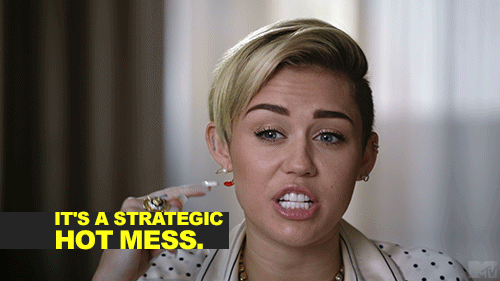
Phil’s Budget Speech: Hot or Not?
On Monday October 29th, our Chancellor of the Exchequer, aka Philip Hammond, aka Fiscal Phil (he called himself that, not us) gave his yearly Budget speech. You can see our breakdown of what he said the government was going to do with its money here and here.
But here we don't want to talk about what he said but how he said it. We want all economy chat to be fun, interesting and accessible. On those measures, how did Fiscal Phil do?

Talking about the economy!
We think the economy is a conversation we should all be part of, so the fact that the Chancellor bothers to make a big public speech about what he's trying to do to the economy gets a big thumbs up from us.

Telling jokes
Humour is a great way to get people engaged and help them remember what's being said. And while we don't think Phil's gonna be playing Live at the Apollo anytime soon, we did enjoy his extended toilet-humour after announcing a tax break for public lavs. (He didn't want to get "bogged down" in it, but he was glad it "hadn't leaked".)

Examples
It can be hard to know what all those big numbers being flung around actually mean for us in our real lives, so we appreciated Phil giving some concrete examples of who would benefit, and by how much. For example, he said that single parents working while on Universal Credit will get £890 more a year.

Repetition of key points
There's a lot going on during the budget speech, and it can be easy to miss what was just said. But Phil's repetition of his key points: austerity is ending, the hard work of the British people has paid off, meant we knew what his most important points were.

Making it not all about money
Too many people think economics is just about moolah. So it was great to see Phil spend lots of his Budget speech talking about other things: jobs, wages, council houses, mental health, the environment and high streets, to name a few.

Acknowledging own ideology
Phil and his Conservative Party have some set ideas about how the economy works, ideas lots of people like (and voted for) but which not everyone agrees with. So it's good that he noted that he's talking about economic opinions, not rules by saying things like "this government has prioritised..." / "our fiscal rules..."

Positivity
When we ask people what turns them off about economics, they say it's because it always seems super negative. So it was nice to see Phil talking about bits of the economy in a positive way - saying there was "a bright, prosperous future" ahead and "we the British people have a record to be proud of". (Although whether that positivity works for you depends on whether you trust the gov or not).

Tone
Despite Phil's attempts at some wisecracks, the whole thing felt a little mechanical. That's not throwing shade on Phil's personality - but perhaps politicians as a whole could rethink some of their parliamentary gimmicks (like referring to other MPs as "my right honourable friend") which can seem silly and off-putting to some viewers.

Not explaining things
Phil often mentioned organisations, schemes and projects without giving any background for people who didn't know what they are/do. E.g. he talked a lot about the OBR, without telling us what it stands for (Office of Budget Responsibility) or what it does (looks at how the government is spending money and see if it looks like it'll end in disaster or not).

Absolute numbers
The Budget involves a lot of numbers being thrown around: £20.5 billion for the NHS, £160 million for the police... but without putting those numbers in context, they become kind of meaningless. How many billions do governments normally spend on healthcare services? How many doctors or MRI machines will it buy?

Highbrow language
It's lovely that Phil has a good vocabulary, but talking about "alacrity" and "aficionados" came across as a little pretentious. Not everyone will know what those words mean ("quickly" and "fans of" FYI) and as the Plain English campaign would say, there's no downside to speaking simply and clearly.

Political bickering
Yes, how the government spends money is deeply political. Yes, it's good to know where different parties stand. But Phil's constant side-swiping at the opposing Labour Party ("Labour's carping and relentless negativity", "Labour's Great Recession") made the whole speech feel less like a a way to learn about the economy and more the world's nerdiest WWE fight.

Some downright weird jargon
Anyone like to explain to us what Phil was going on about with his "fiscal headroom" and "double Deal Dividend"? Sure, using some economic terms can be useful but over-technical language like this is just alienating.

What do you think of Philip Hammond's budget? Let us know on Twitter: #LetsTalkBudget




